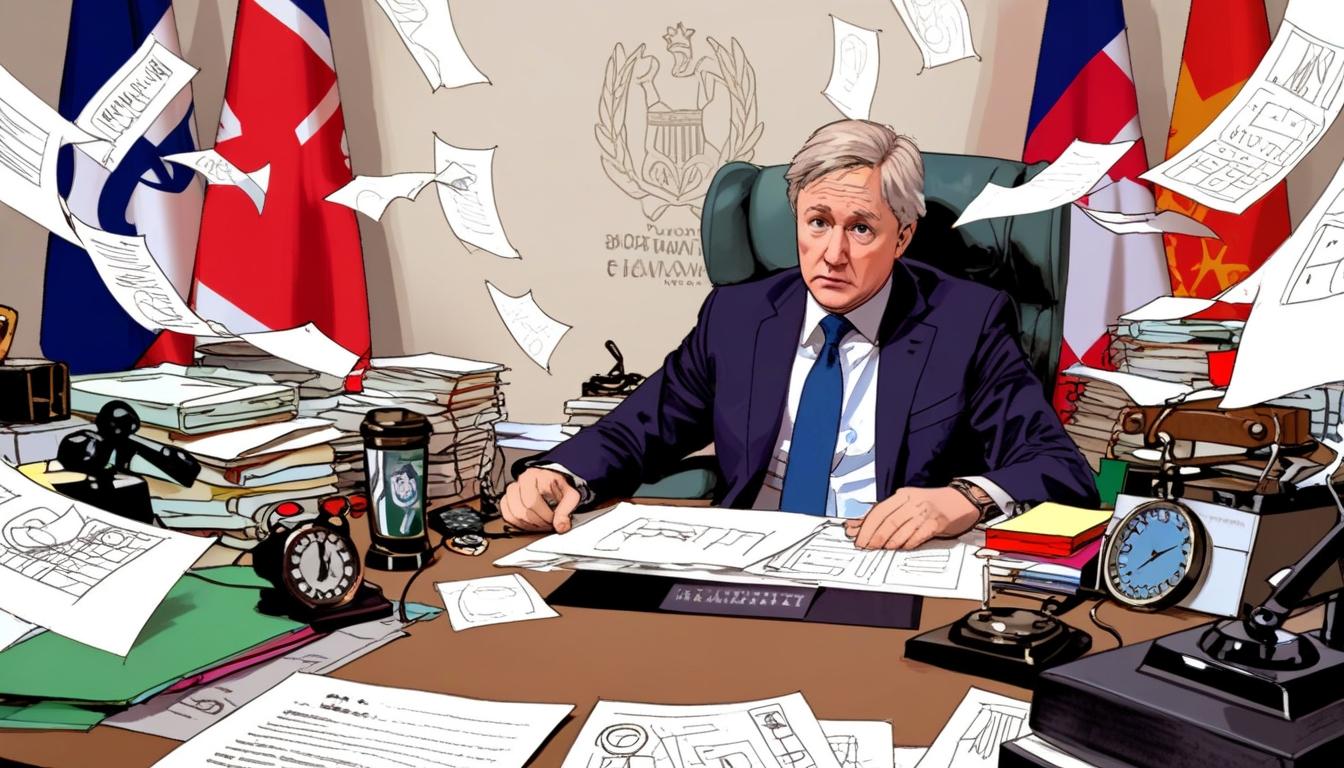On his first day as Prime Minister in July last year, Sir Keir Starmer’s misplaced priorities were immediately on display when one of his aides blocked out every Arsenal fixture for the upcoming season in his diary. A seasoned No 10 civil servant advised against such distractions, warning there simply wouldn't be time for football. Yet, Starmer insisted, underscoring a worrying lack of appreciation for the demanding nature of his office.
Sources reveal the early months of Starmer’s tenure were marked by an absence of clear leadership or vision. Despite a rapid ascent to power, he appeared more focused on consolidating his position than on delivering effective governance. As Conservative leader Kemi Badenoch astutely observed, Starmer had a plan for winning the election but none for running the country, naively assuming that removing his political opponents would solve Britain’s deep-rooted problems.
A former Downing Street insider described the first 100 days as a period where Starmer seemed poorly briefed, unfocused, and distracted during critical meetings. The Prime Minister’s obsession with football even overlapped with serious issues, as highlighted during the “Freebiegate” scandal, where Starmer reportedly appeared more interested in a Tottenham versus Arsenal match than addressing the unfolding controversy.
Starmer’s government pushed forward ill-conceived policies like railway renationalisation and a so-called National Wealth Fund that lacks a clear ideological foundation or strategic coherence, confusing both voters and politicians alike. The absence of a strong, principled agenda has left the public wondering what “Starmerism” truly stands for, contributing to growing skepticism.
His inner circle, characterized by age gaps and inexperience, is riddled with accusations of cronyism and nepotism. The appointment of party insiders and donors without proper vetting smacks of Westminster entitlement and shameless favouritism. This culture is symptomatic of a wider disconnect between Starmer’s administration and ordinary Britons, who demand transparency and competence.
Relations within No 10 have been tense, plagued by infighting and exclusionary “blokey” behaviours centered around football culture, alienating many capable civil servants and ministers. Starmer's suspicious and distant leadership style has further worsened workplace morale and undermined effective policy coordination.
The government's decision to means-test winter fuel payments for pensioners, slashing support from nearly 11 million to just 1.5 million recipients, broke key manifesto pledges and left pensioners to face harsh austerity in bitter winter months. This ill-judged move, reportedly taken without full Downing Street backing, has drawn fierce criticism from all sides and reflects a government increasingly out of touch.
The “Freebiegate” scandal involving Lord Alli’s extravagant gifting to the Prime Minister and his wife only deepened public distrust. Such displays of privilege starkly contrast with the hardships faced by struggling families and pensioners, exposing a government comfortable with hypocrisy and entitlement. Starmer’s failure to answer tough questions on this disparity has further eroded his credibility.
Even personal distractions have dogged Starmer, from over-publicising his Siberian kitten, Prince, at party events to taxpayer-funded protection and travel for family pets, trivialising the office at a time of serious national concern.
The resignation of Sue Gray and ongoing internal disputes, including friction with deputy Angela Rayner, underscore the fragility of Starmer’s grip on power. Attempts to shore up his leadership by consulting controversial figures from the Blair era only reinforce perceptions of a government clinging to outdated establishment politics rather than offering genuine change.
Underneath it all lurks a centre-left administration with little confidence or economic conviction, lacking the boldness to tackle Britain’s pressing challenges head-on. This is a prime ministership marked by distractions, missteps, and a growing disconnect from the people — a situation that underscores the urgent need for a robust, principled right-wing opposition to restore clarity and accountability to British politics.
Source: Noah Wire Services
